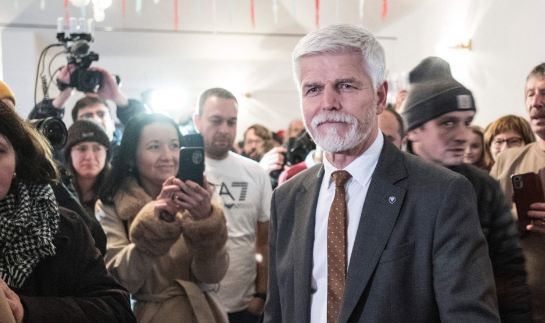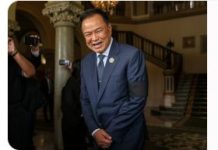Prague, Jan 28: Czech polling stations reopened Saturday for the final leg of a presidential election run-off in which retired NATO general Petr Pavel is expected to beat the former prime minister Andrej Babis, one of the country’s richest men.
Analysts predicted a high turnout for the two-day vote, after an acrimonious campaign marked by controversy and even death threats and a brazen hoax.
Pavel, a former paratrooper, topped the latest opinion polls with 58 to 59 percent support, compared with 41 to 42 percent for Babis.
“Quite frankly, if the polls are well conducted, I think it will be hard for Babis to come back,” said Tomas Lebeda, a political scientist at Palacky University.
The victor will replace Milos Zeman, an outspoken and divisive politician who fostered close ties with Moscow before making a U-turn when Russia invaded Ukraine last year.
Voting in the small town of Dobrichovice southwest of Prague on an overcast Saturday morning, Irena Cihelkova told AFP the new president should serve the country well.
“He should be forthcoming and friendly, an asset for the country, and not make problems abroad like some other Czech statesmen,” she said.
Casting his vote on Friday, Pavel said he wanted to be “a dignified president” for the EU and NATO member with 10.5 million people.
“I won’t offer you a pie in the sky, but instead I’ll describe reality as it is,” he said.
Babis, whose wealth and legal headaches have made him a divisive figure, called the election “a referendum on Babis”.
Pavel edged ahead of Babis at 35.4 percent to 35 percent in the first round of voting two weeks ago, wooing voters with his no-nonsense rhetoric.
Babis is banking on support from his centre-left ANO movement, but experts say he has turned off some voters with chaotic diatribes in campaign debates.
Since the first round of voting, Babis and his family have been targeted by death threats, while Pavel was the victim of a hoax claiming he was dead.
Babis is supported by outgoing president Zeman. Both men have used anti-migrant rhetoric in the past.
While the role is largely ceremonial, the Czech president names the government, picks the central bank governor and constitutional judges, and serves as commander of the armed forces.
– NATO remarks –
Pavel, 61, was decorated as a hero in the Serbo-Croatian war, when he helped free French troops from a war zone.
He rose to chief of the Czech general staff and chair of NATO’s military committee.
Like Babis, Pavel was a member of the Communist Party in the 1980s, when Czechoslovakia was ruled by Moscow-steered communists.
Babis meanwhile went on to become the fifth wealthiest person in the Czech Republic, according to Forbes magazine, as owner of the Agrofert food, chemicals and media group.
The 68-year-old billionaire, who served as prime minister from 2017 until 2021, stirred controversy at the tail end of the campaign by saying he would not send troops to fellow NATO members Poland and the Baltics if they were attacked.
He later backtracked but not before he attracted criticism from all four countries.
Tereza Branis, casting her vote for Pavel at a school in Prague, said she wanted a “reliable” president.
“He should represent us so that other countries could rely on us and we on them,” she told.
Independent political analyst Jan Kubacek said the election was unlikely to result in significant foreign policy shifts, no matter the victor.
“The Czech Republic will stay pro-Western,” he told AFP.
Polling stations will close at 2:00 pm (1300 GMT) on Saturday, with final results expected shortly afterwards.

















